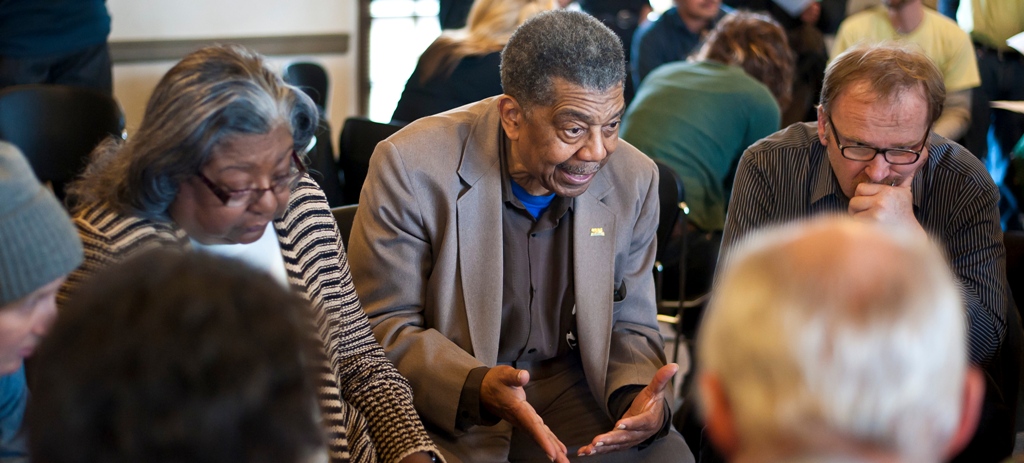 Danielle Allen, former Dean of Humanities at the University of Chicago and author of Talking to Strangers, suggests: “Engage a stranger in conversation across a racial, ethnic, or class divide and one gets not only an extra pair of eyes but also an ability to see and understand parts of the world that are to oneself invisible.”
Danielle Allen, former Dean of Humanities at the University of Chicago and author of Talking to Strangers, suggests: “Engage a stranger in conversation across a racial, ethnic, or class divide and one gets not only an extra pair of eyes but also an ability to see and understand parts of the world that are to oneself invisible.”
The Conversation Project from Oregon Humanities is all about talking to strangers. And right now, recruitment efforts are open for Oregon leaders who want to facilitate public discussions as part of this statewide program, funded in part by the Oregon Cultural Trust.
The Conversation Project offers Oregon nonprofits free, educational public discussion programs about important topics that affect our daily lives. The goal for the program is that diverse communities statewide—neighbors and strangers alike—have the opportunity to engage in humanities-based, public conversations that are timely and relevant.
Through March 8, 2013, Oregon Humanities is seeking humanities scholars, artists, community leaders, innovators, provocateurs, and other engaged thinkers to be conversation leaders for our 2013–15 season. Great Conversation Project leaders are smart, passionate about ideas, able to listen to others, and curious—individuals who understand the role of the humanities in the public sphere, but who are also teachers at heart, regardless of their day job.
Since 2009, this public engagement opportunity has offered Oregon scholars the chance to travel the state and share their passion for ideas with Oregonians from all walks of life— enhancing civic discourse and broadening their own perspectives in the process. A current conversation leader from Portland State University recently told Oregon Humanities, “Thanks for setting up all these amazing opportunities. I was just thinking the other day how incredibly different my life would be if I hadn’t decided to take the chance and apply.” For more information, including the full Request for Proposals and online application, visit oregonhumanities.org
-Annie Kaffen, Oregon Humanities